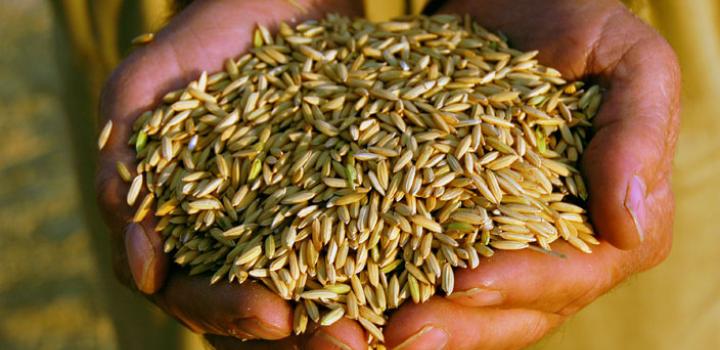Provision in new Farm Bill could help Arkansas farmers sell crops in Cuba
by December 28, 2018 2:35 pm 904 views

The newly minted Farm Bill contains a provision that will allow U.S. agricultural producers to use federal market promotion dollars for exports to Cuba.
This is the first law to repeal part of the U.S. embargo on Cuba in nearly 20 years and lays the groundwork for comprehensive trade between the United States and Cuba, according to Engage Cuba, a non-profit group that promotes broader trade between the two nations.
It’s estimated that Cuba imports about $2 billion worth of agriculture products per year, according to the U.S. Department of Agriculture (USDA). The USDA estimates that figure could grow to $6 billion if the embargo were lifted. Chicken and rice are the top agriculture imports into Cuba. Arkansas produces roughly half of the rice grown in the U.S., and it’s one of the top poultry producing states. Cuba gets most of its rice from Vietnam, meaning Arkansas rice growers could spend less in transport costs.
U.S. Rep. Rick Crawford, R-Jonesboro, praised the provision. Crawford has been a vocal, and staunch supporter of greater access to Cuban markets.
“I applaud my Senate colleagues for working to get this provision in their bill and I worked hard to make sure it made it into the final conference report. The Heitkamp amendment is an important first step towards exporting American agriculture goods into Cuba. We look forward to building on this momentum in the 116th Congress,” Crawford said.
The provision codifies the ability of U.S. farmers receiving USDA market promotion grants to direct those funds toward marketing their products in Cuba. These grants, under the Market Access Program (MAP) and Foreign Market Development (FMD) program, help U.S. farmers offset the costs of overseas marketing.
Engage Cuba President James Williams blasted the decades-old embargo and said a change in policy is needed.
“It’s a rebuke to Cuban-American hardliners who have clung to a failed policy of isolation for the past 56 years. American farmers are the best in the world, and it’s a travesty that our archaic laws have prevented them from opening new markets so close to our shores,” Williams said.
The provision, introduced by Senator Heidi Heitkamp, D-ND, passed both chambers of Congress in December with wide bipartisan support. Sen. Heitkamp’s MAP/FMD amendment is part of the Senate Agricultural Export Expansion Act (S.275), which would also remove restrictions on private financing of U.S. agricultural exports to Cuba if passed.
A sanctions law passed in 2000 exempts food sales from the U.S. embargo, but it bars U.S. sellers from offering financing or credit terms to Cuban purchasers and prohibits taxpayer-funded export assistance for sales to Cuba. The 2018 farm bill repeals the ban on export assistance by allowing the use of MAP/FMD dollars in Cuba. A provision to fully remove agricultural financing restrictions on Cuba was also considered, but ultimately not included, despite ardent support from members of the House Agriculture Committee and national commodity groups.
In September, a bipartisan group of over 60 agriculture associations, businesses, and elected officials across 17 states sent a letter to the leadership of the House and Senate Committees on Agriculture to urge the inclusion of both Cuba trade provisions in the final farm bill. The Congressional Budget Office determined in July that including the full agricultural financing bill would have saved American taxpayers $690 million over 10 years.
“Increasing opportunities for agricultural trade between Cuba and the U.S. is a victory for American farmers,” U.S. Sen. John Boozman, R-Ark., said. “Enhancing their ability to promote their products and build relationships in a market that imports nearly 80% of its food is exactly the right thing to do, particularly given the challenges the agriculture industry has been confronting, and I hope to build on this momentum to accomplish even greater opportunities for trade that benefits both nations.”
